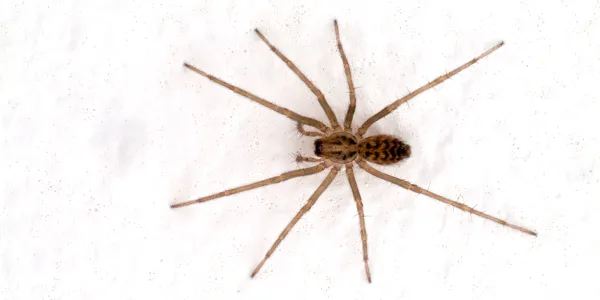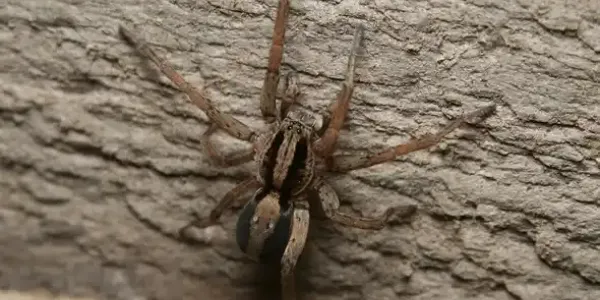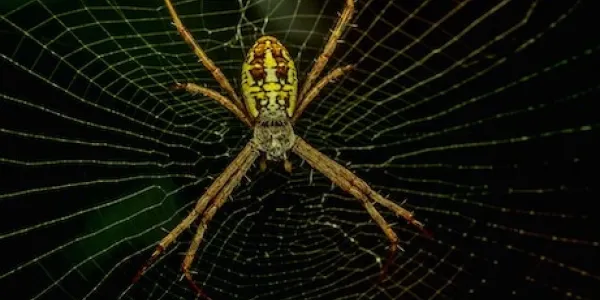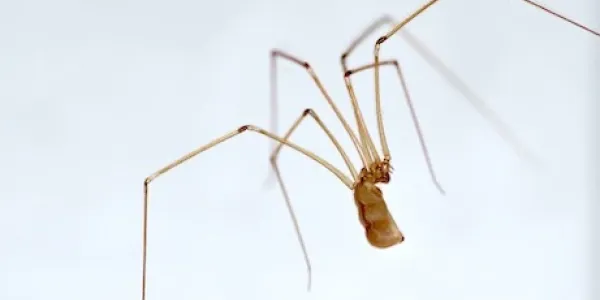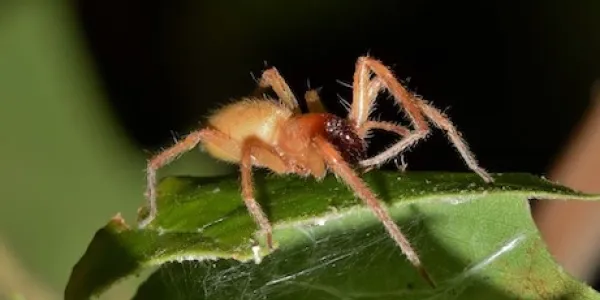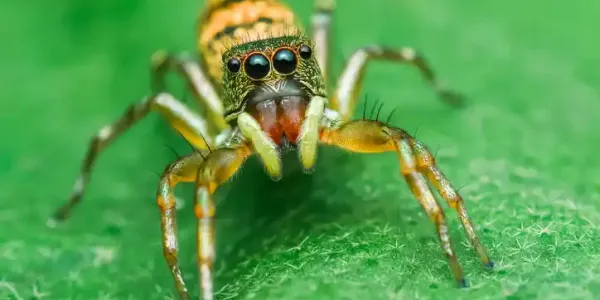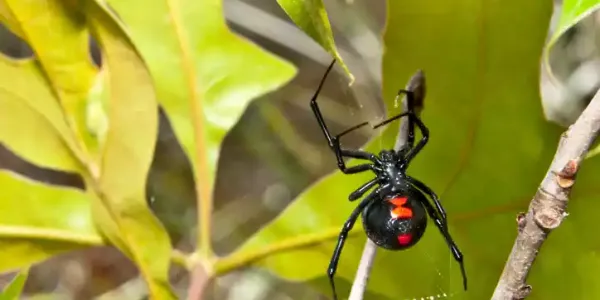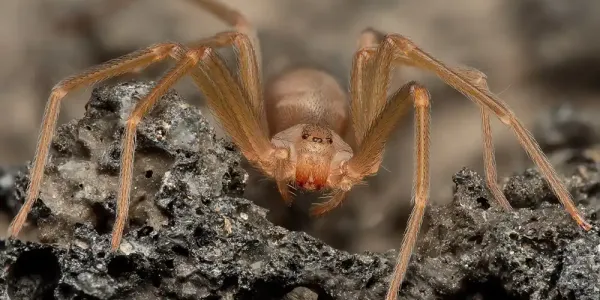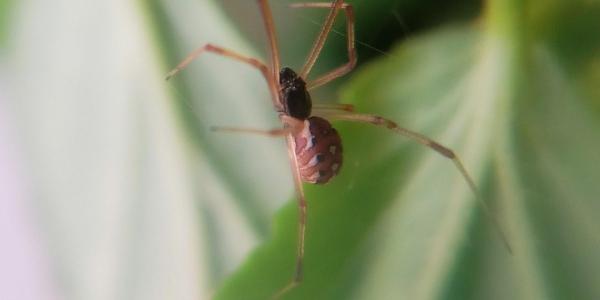Most Common Spiders in Virginia
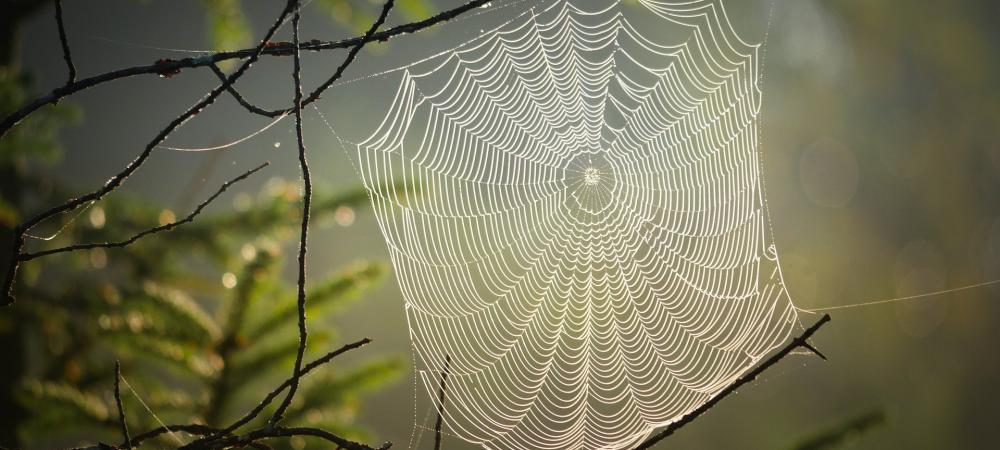
Virginia is home to a wide variety of spiders, most of which are harmless and play a helpful role in controlling pest populations. However, a few species can be dangerous if encountered. Whether you're spotting webs in your garden or a visitor on your bathroom ceiling, knowing how to identify these spiders can help you stay informed and safe.
Common, Mostly Harmless Spiders in Virginia
House Spider
House spiders are small and inconspicuous, often tan or grayish with mottled patterns. They typically spin messy, irregular cobwebs in quiet areas of the home, like corners, behind furniture, or in basements. While they may look unsettling, they rarely leave their webs and are more interested in catching small flying insects than interacting with people. These spiders pose no medical risk and are often considered beneficial for reducing household pests.
Wolf Spider
Wolf spiders are some of the largest spiders Virginia homeowners might encounter indoors. Ranging from ½ inch to over 1 inch in size, they’re fast, solitary hunters that don’t rely on webs to catch prey. Instead, they actively stalk insects, usually along baseboards or under furniture. Females are often spotted carrying egg sacs or even spiderlings on their backs. Though their size can be alarming, their bites are extremely rare and typically no worse than a mild bee sting.
Orb-Weaver Spider
Orb-weavers are known for creating large, symmetrical, wheel-shaped webs—typically strung between branches, fence posts, porch railings, or corners of outdoor structures. Many species have bright colors or spiky legs, like the yellow garden spider or spined micrathena. They're most active in late summer and early fall and tend to rebuild their webs daily. While they may deliver a defensive bite if provoked, they are not aggressive and do not pose a threat to people or pets.
Cellar Spider
Cellar spiders, often confused with harvestmen (true daddy longlegs), have small bodies and extremely long, thin legs. They are often found hanging upside down in webs located in ceiling corners, crawlspaces, or under sinks. These spiders are non-venomous to humans and are actually known to prey on other spider species, including house spiders. They are passive by nature but can become a nuisance if their population grows indoors.
Sac Spider
Sac spiders are pale yellow to light gray and tend to hide during the day inside small silken sacs in wall voids, corners, or curtains—hence their name. At night, they roam in search of prey, which can lead to human encounters. Their bite has been associated with mild to moderate skin irritation, often compared to a pimple or mild rash, but reactions vary and are usually not severe. Sac spiders are more common indoors during the cooler months.
Jumping Spider
These small, compact spiders are easy to recognize due to their jerky, hopping movements and large front eyes. They come in various colors, often black or brown with white or iridescent markings. Jumping spiders are visual hunters and prefer sunny window sills, walls, and other well-lit areas. They are curious and may appear to "watch" humans, but they’re completely harmless and usually quick to flee when approached.
Poisonous Spiders in Virginia
While most spiders in Virginia aren’t harmful, there are a couple to be cautious around:
Black Widow Spider
Black widows are jet-black with a glossy appearance and a distinctive red hourglass shape on the underside of their abdomen. Females are the ones people typically notice, while males are smaller and less recognizable. These spiders favor dark, sheltered spots like woodpiles, sheds, under eaves, or inside storage containers. A bite can cause muscle pain, cramping, or nausea and should be treated promptly by medical professionals, but fatalities are extremely rare.
Brown Recluse Spider
Brown recluses are light to dark brown with a violin-shaped mark on their back. They are elusive, preferring to hide in cardboard boxes, closets, and behind baseboards. While their native range is limited to southwestern Virginia, occasional sightings elsewhere in the state are typically due to relocation via luggage or furniture. Bites are rare but can cause tissue necrosis and require medical evaluation, especially if the wound worsens over time.
Brown Widow Spider
Brown widows are lighter in color than their black widow relatives and have an orange or yellowish hourglass marking. They build webs in similar locations—under patio furniture, inside mailboxes, or along fence posts. Their venom is less toxic than the black widow's, and symptoms from bites are usually mild and short-lived. However, their presence can still be concerning, especially in homes with children or pets.
Where Do Spiders Live?
Spiders are highly adaptable and can be found in a range of indoor and outdoor environments across Virginia, including:
- Indoors: Basements, attics, garages, closets, and ceiling corners.
- Outdoors: Gardens, sheds, under decks, in firewood piles, and around porch lights.
- Near Water: Fishing spiders are commonly found near ponds, creeks, and lakes.
Most spiders prefer areas that are dark, quiet, and undisturbed, making cluttered storage areas and infrequently used spaces ideal habitats.
What Attracts Spiders?
Certain conditions around your home can make it more appealing to spiders. Addressing these factors is an important first step in keeping them out. Attractants include:
- Abundant Insects: Spiders follow food sources. Homes with lots of flies, mosquitoes, or other small insects will naturally attract spiders.
- Clutter and Storage: Cardboard boxes, stacks of clothes, or messy storage areas create perfect hiding places.
- Outdoor Lighting: Lights attract flying insects, which in turn attract spiders looking for an easy meal.
- Moisture: Damp areas like basements and crawl spaces are ideal environments for many spider species.
By learning to identify Virginia’s most common spiders and knowing where they thrive, you can take simple steps to reduce encounters and address infestations if needed. While most spiders are nothing to fear, it’s always good to stay informed, especially when dealing with the few that can be harmful.
If you're noticing too many spiders around your home, pest control services can help relieve you of spiders quickly. Our team offers a pest-free guarantee and same-day services, so you can trust that when you contact us, your infestation will be taken care of quickly and effectively.

